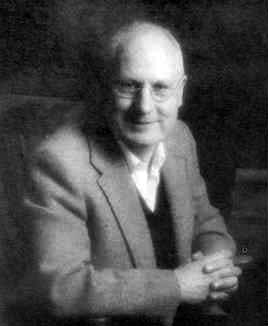
John William Scott Cassels
 المؤلف:
J J O,Connor and E F Robertson
المؤلف:
J J O,Connor and E F Robertson
 المصدر:
J J O,Connor and E F Robertson
المصدر:
J J O,Connor and E F Robertson
 الجزء والصفحة:
...
الجزء والصفحة:
...
 25-1-2018
25-1-2018
 636
636
Born: 11 July 1922 in Durham, England

J W S Cassels is known as Ian Cassels. His parents were John William Cassels, Director of Agriculture in County Durham in the north of England, and Muriel Speakman Lojoit. He attended Neville's Cross Council School in Durham and from there he went to George Heriot's School in Edinburgh where he completed his schooling. He then entered Edinburgh University, graduating with an M.A. in 1943. In order to study for his doctorate Cassels entered Trinity College Cambridge, being awarded a Ph.D. in 1949. In this year he was elected a fellow of Trinity College. Also in 1949 he married Constance Mabel Merritt Senior; they had one son and one daughter. Constance Cassels died in 2000.
After one year as a lecturer in mathematics at the University of Manchester Cassels returned to Cambridge in 1950 as a lecturer. In 1963 he was appointed Reader in Arithmetic at Cambridge and in the same year he was honoured with election as a fellow of the Royal Society of London. Then, in 1967, he was appointed Sadleirian Professor of Pure Mathematics at Cambridge. Two years later, in 1969, he became Head of the Department of Pure Mathematics and Mathematical Statistics at Cambridge and he continued as Sadleirian Professor and Head of Department until he retired in 1984.
Cassels served the Royal Society and the London Mathematical Society in various roles. He was a member of the Council of the Royal Society in 1970-71 and he served as vice-president in 1974-78. He was the 58th president of the London Mathematical Society in 1976-78 and he was a member of the Executive of the International Mathematical Union from 1978 to 1982.
Cassels has worked on every aspect of the theory of numbers, particularly on the theory of rational quadratic forms and local fields. His mathematical publications started in about 1947 with a series of papers on the geometry of numbers, in particular papers on theorems of Khinchin and of Davenport, and on a problem of Mahler. After further papers on Diophantine equations and Diophantine approximation he wrote a series of five papers on Some metrical theorems in Diophantine approximation. He next worked on Vinogradov's theorem on uniform distribution and, in 1957, he published his first book Introduction to Diophantine approximation (1957) which was reprinted in 1972.
After further papers on subgroups of infinite abelian groups and normal numbers he wrote a series of eight papers on Arithmetic on curves of genus 1. Then in 1959 he published another book, An introduction to the geometry of numbers. Among work undertaken after this was work on the representation of rational functions as sums of squares, integral points on certain elliptic curves, Kummer sums, and on factorising polynomials in several variables.
Cassels has won received a number of awards for his outstanding contributions. These include the Sylvester Medal from the Royal Society in 1973:-
... for his numerous important contributions to the theory of numbers.
He also received the De Morgan Medal from the London Mathematical Society in 1986. The citation for this award reads:-
Ian Cassels has made many distinguished contributions to the theory of numbers; possibly his most important work is on the arithmetic of elliptic curves, published in a series of papers between 1959 and 1964. These papers remain fundamental to our understanding of the problems involved and have provided the foundation for much subsequent work.
Ian Cassels has contributed to almost all branches of number theory. His work includes numerous papers on Diophantine Approximation and the Geometry of Numbers, and seminal contributions to the theory of quadratic forms and sums of squares. He has written excellent books on Diophantine Approximation, Geometry of Numbers, Algebraic Number Theory and Rational Quadratic Forms.
He lists his leisure interests as The Higher Arithmetic and gardening.
Article by: J J O,Connor and E F Robertson
September 2009
 الاكثر قراءة في 1920to1924
الاكثر قراءة في 1920to1924
 اخر الاخبار
اخر الاخبار
اخبار العتبة العباسية المقدسة


